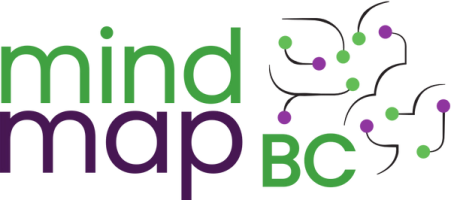Peoples Music Therapy
Summary
Addictions counselling
Relationship counselling
Individual counselling
Crisis counselling
Support groups
Information and referrals
 Peer Support
Peer Support Social groups and networking
Social groups and networking Sliding Scale Available
 Wheelchair Accessible
Wheelchair AccessibleLGBQ+ Affirming
Trans Affirming
Two-Spirit Affirming
Remote services
Online resource
We offer music therapy services to a wide range of individuals. Rooted in a trauma-informed, anti-oppressive, social justice, holistic client/family centred approach, we feature BIPOC therapists who have experience working with racialized peoples and the 2S/LGBTQ+ community. We have training in offering services to neuro-diverse individuals, incarcerated or at-risk youths, seniors with dementia, persons with psychiatric diagnoses including anxiety, depression, c-PTSD, and people experiencing addiction/recovery among others. Let us know how we can best support you and your family members in achieving optimal health.
Music therapy is the clinical application of music as provided by a credentialed professional who encourages, maintains, and promotes improved health in individuals with various health implications.
There is a long tradition of music therapy in health practices around the world. Peoples Music Therapy aspires to bring evidence-based, compassionate, culturally competent music experiences to our modern healthcare systems. We are here to ensure that where there are people, there is music.
Want to learn more about this service’s work with Two-Spirit, trans, LGBQ+ people?
We invite all service providers listed on MindMapBC to answer the following questions. These questions were developed in collaboration with community members, researchers, and mental health and other service providers. They're intended to help us understand what a service provider or organization is doing to affirm and support sexual and gender diverse service users.
See below for responses for this listing.
Want to learn more about our screening questions and filters?
Are the forms used in your practice inclusive of various sexual orientations and gender identities (e.g., opportunities to fill in pronouns, etc.)?
—Yes
Do all individuals involved in the care of individuals accessing your services ask about pronouns and use them appropriately?
—Yes, to some extent
We are always learning
Are you and your colleagues aware of what specific barriers may exist for trans individuals accessing your services? Please describe some of these below.
—Yes
Are you and your colleagues aware of what specific barriers may exist for Two-Spirit individuals accessing your services? Please describe some of these below.
—Yes, to some extent
We recognize that the medical system is a colonial system that has traditionally pathologized behaviours and lifestyles that would have been normal before contact with European settlers. One of these is gender norms and this has resulted in re-traumatizing individuals seeking wellness who's identity is seen as abnormal.
Are all individuals involved in the care of individuals accessing your services comfortable asking relevant questions about gender identity and sexual orientation?
—Yes
Are you and your colleagues aware of what specific barriers may exist for LGBQ individuals accessing your services? Please describe some of these below.
—Yes, to some extent
We have staff that are part of the LGBQ community. We hope that there are few barriers in accessing services from us. We are also aware that members of this community have often had adverse experiences with treatment centres due to sexual orientation and that homosexuality was in the DSM only a few decades ago.
Can you and your colleagues distinguish gender/identity dysphoria/distress from mental health conditions?
—Yes
Do all individuals involved in the care of individuals accessing your services receive specific training on cultural humility? Is yes, please type below how frequent this training is.
—Yes, to some extent
We convene once a month to discuss our practice/clients. We all have various training that we share with one another at these meetings. This is also a fundamental part of working as a music therapist.
Does your practice have gender-neutral washrooms?
—No
We don't have washrooms.
Are there clear anti-discrimination policies that include gender identity, gender expression, and sexual orientation in your organization or practice?
—Yes
Are all individuals involved in service provision actively engaged in decolonizing their practices and/or organization? If yes, please type below what actions you and/or your organization are taking.
—Yes, to some extent
Our leadership is required to take the Sanyas training program or similar. However, we are a for-profit private health company that works within the capitalist colonial system; we try to be self-aware of this facet. The grass roots of our company grew out of work with Indigenous youth.
Are all individuals involved in service provision actively engaged in anti-racist practices, policies, and systems in their care model?
—Yes
Address
150 E 3rd Ave
Vancouver, BC
V5T 1C8
Last updated: June 7, 2023
Request changes —

